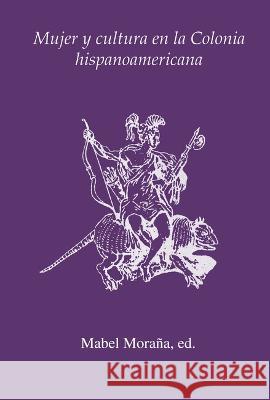Mujer y cultura en la Colonia hispanoamericana » książka
Mujer y cultura en la Colonia hispanoamericana
ISBN-13: 9781930744127 / Angielski
La mujer colonial ha sido el material primario de mitos ancestrales, un personaje secundario en las gestas heroicas de la resistencia americana, un oscuro objeto de deseo y de las proyecciones imaginarias de los conquistadores que sigue ocupando un espacio en gran parte impenetrado por el discurso critico e historiografico latinoamericano. El espacio vital y discursivo de la mujer colonial fue siempre un ambito acotado y controlado por estrategias y retoricas que le asignaron valores y funciones precisas e inapelables destinadas a confirmar y fortalecer el lugar del Poder. El presente volumen intenta presentar una imagen de esta mujer distinta a la que ofrecen las versiones tradicionales del periodo que comienza el America con el descubrimiento de Europa (sus adelantados, misioneros y burocratas, de sus libros, sus pestes y sus mitos) y se extiende hasta la fundacion de los estados nacionales. Los trabajos reunidos en este libro recorren un periplo que va desde las primeras imagenes rescatadas en cronicas, relaciones e iconografias coloniales hasta las que se acercan a las etapas que preparan la Independencia. Estos estudios, en su variedad, coinciden en el objetivo de recuperar, a traves de la investigacion de documentos y la interpretacion textual, los rasgos que definen un sujeto social siempre en huida, multifacetico y reticente, que casi nunca se revela en una primera lectura y que habita primordialmente en los margenes y en las entrelineas de los discursos masculinos. ~ The colonial woman has been the primary source of ancestral myths, a secondary character in the heroic deeds of the American resistance, an obscure object of desire and of the imaginary projections of the conquistadors that continues to occupy a space largely impenetrable by the Latin American critical and historiographic discourse. The vital and discursive space of the colonial woman was always an area limited and controlled by strategies and a rhetoric that imposed on her specific and unquestionable values and functions destined to confirm and strengthen the established powers. This volume tries to present an image of this woman different from the one offered by the traditional versions of the period that America begins with the discovery of Europe (its advances, missionaries and bureaucrats, its books, its plagues and its myths) and extends to the founding of the national states. The works gathered in this book cover a journey that goes from the first images of women rescued in chronicles, colonial relations and iconographies to those that approach the stages that prepare for Independence. These studies, varied as they are, have the common goal of recovering, through the investigation of documents and textual interpretation, the features that define a social subject always on the run, multifaceted and reticent, which is almost never revealed in a first reading and that lives primarily in the margins and between the lines of masculine discourses.











